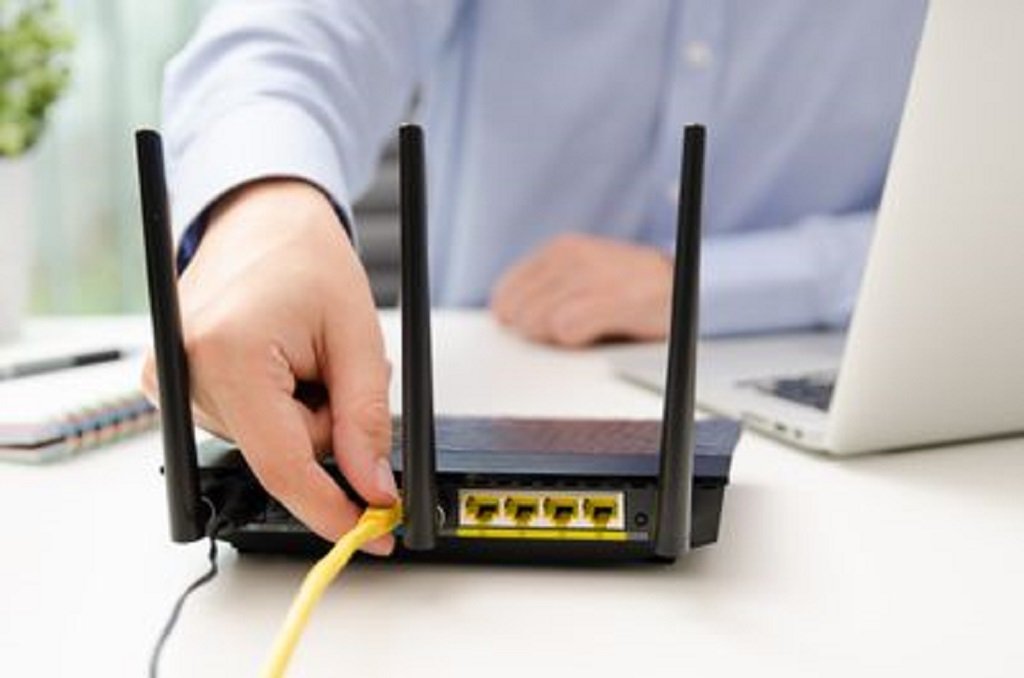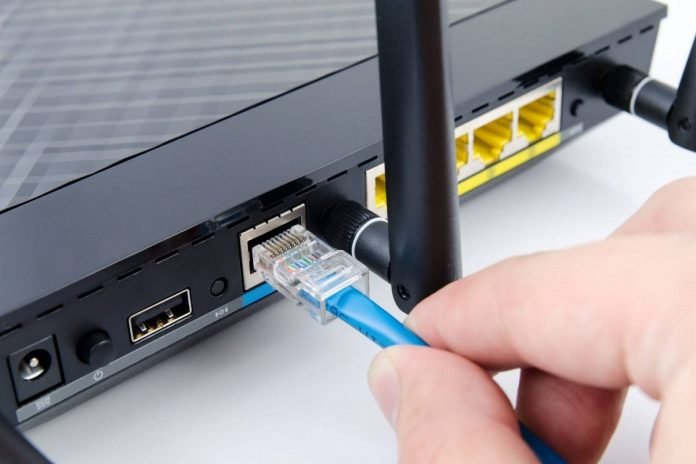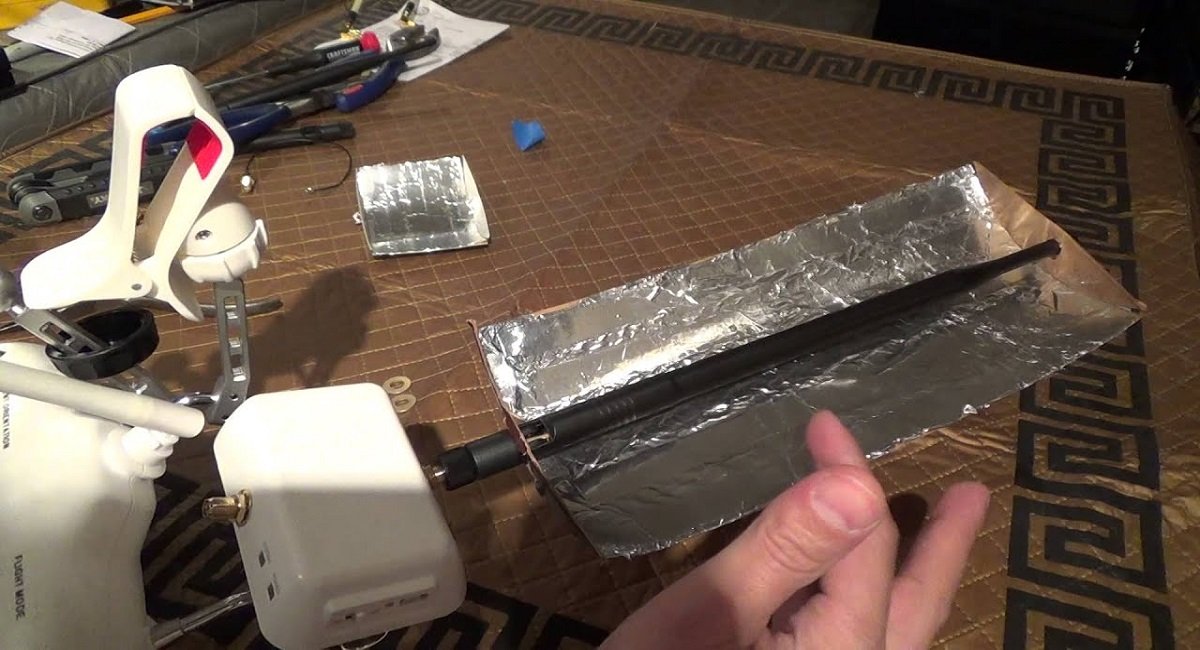Experts say that if you make it a habit to turn off your WiFi router at night, it will make a big difference in how much EMF you are exposed to every day. In many homes, WiFi routers are a major source of EMF pollution. Most people leave their routers on all the time, which means they are constantly being exposed to EMFs.
In the first part of this article, we’ll talk about the dangers of WiFi radiation and why you should turn it off at night. Then, we’ll talk about some ways to set your WiFi devices to turn off on their own. And finally, we’ll talk about some other ways to limit your overall exposure to this radiation.
Table of Contents
How Does WiFi Work?
Wi-Fi works because the wireless router in your home sends out radio waves that allow it to talk to other electronic devices that are compatible with it. These compatible electronic devices will connect to Wi-Fi through radio waves and continue to use these radio waves to talk to the internet service provider through the wireless internet router.
All of this happens at the speed of light, and the human eye can’t see any of it. When devices are connected to Wi-Fi, both the device and the wireless internet router send out radio waves.
Radiofrequency is another name for radio waves. The electromagnetic field is a type of radiofrequency. Electromagnetic field radiation comes from electromagnetic fields. So, radio waves are a form of electromagnetic radiation.
How Dangerous Is “Wi-Fi Radiation”?
By “Wi-Fi Radiation,” I mean the radiofrequency radiation that your Wi-Fi sends out. This is a type of EMF radiation. With an EMF meter, it’s easy to measure radiofrequency radiation. Radiofrequency radiation is the same kind of radiation that your cell phone uses to talk to cell towers nearby.
It’s also the same type of EMF radiation that causes a lot of damage to our bodies and brains when we use routers, cellphones, and other wireless devices. I don’t want to go into too much detail, but here’s a quick rundown of how “Wi-Fi Radiation” affects our health and way of life:
Read More: How to Fix US/DS Blinking Light Arris Modem
The Next Generation of Wireless Fidelity
WiFi standards have names, just like the generations of cell phone networks, such as 3G, 4G, and now 5G. WiFi 1 came first, then WiFi 2, and so on. We’re using WiFi 5 right now, which can reach speeds of up to 3.5 Gbps.
In 2018, WiFi Alliance, “an organization for the wireless industry that works to promote wireless technologies and interoperability,” announced WiFi 6. This new standard was finished and approved by the alliance in September 2020. And people say it has a lot of new things. Have a look.
How Fast is WiFi 6?
As the next generation, WiFi 6 is expected to be much faster than WiFi 5. In a controlled environment, it could reach a maximum speed of 9.6 Gbps. That’s almost 3 times faster than the 3.5 Gbps of WiFi 5.
But, as with all wireless networks, these numbers are only possible in a lab setting. And it’s very unlikely that you’ll be able to go this fast in real life.
In the US, the average WiFi speed is about 72 Mbps, which is less than 1% of what WiFi 5 is expected to be. Without a doubt, WiFi 6 connections will be much faster than that. But the speed isn’t all that the next generation of WiFi is about.
5 Ways to Turn off Your WiFi at Night?

Consider it. Your family and you sleep between 6 and 9 hours each night. If you turn off your WiFi router at night, you won’t be exposed to any of that radiation. That’s about a third of your life where you won’t needlessly be exposed to WiFi radiation.
If you make it a habit to turn off your WiFi router at night, you and your family will be less exposed to EMF radiation for a big chunk of the day.
Read More: How to Solve Twitch error 4000
1. Manually Turn Off WiFi Router Each Night
The strip of Electricity This is the least exciting way to do it, but it works. At the end of the day, you can just go into the room where your WiFi router is and unplug it or turn off the power strip it is plugged into.
At the end of every day, I always walk around my house to make sure everything that should be locked is and that all the lights are off. I can easily turn off the power strip where my WiFi router is plugged in by flipping the power switch. It only takes two seconds, and I’m done. The only thing is that you have to remember to turn it back on first thing in the morning.
2. Use A Mechanical Outlet Timer
This is one of my favorite tips for reducing EMF radiation in general because it costs so little and works so well. The idea is easy to grasp. Have you ever been told by your internet provider to “power cycle” your router when something isn’t working? Basically, all you have to do is unplug it, wait about 30 seconds, and then plug it back in.
This clears things up and makes it work better in general. It also shows that when you plug your WiFi back in, it will start working again right away. So, you can buy a simple mechanical outlet timer on Amazon that will automatically do this for you!
These timers are completely mechanical, so they don’t use electricity and don’t make EMF radiation on their own.
3. Program a Set Schedule for Your WiFi Router
This is the most technological solution. But it’s not hard at all. This means that you can log in to the software that controls your WiFi router and change its internal settings so that it turns on and off automatically at certain times and days of the week.
If you rented your router from your internet provider, a simple way to learn how to do this would be to call your internet provider’s tech support phone number and ask them to walk you through it over the phone. Just make sure you are at your computer when you call them. Make sure to write down the make, model, and serial number of your router before you call them, in case they ask you for this information during the call.
If you are a bit more tech-savvy, you can do a Google search for something like “How to set a time schedule on “your make and model” wireless router.” If you’re really lucky, you might be able to type the same thing into YouTube and find a video that shows you how to do it on your router. Here is an example of one of these videos that shows you how to do this for a Billion BiPac 7800N Router.
4. Cable your Network
If you care enough about your health, this choice shouldn’t be too hard to do. The goal here is to set up an ethernet network and hardwire as many of your home’s devices as possible. Phones and other mobile devices should only use Wi-Fi.
Basically, you will need to buy an Ethernet cable that is long enough to connect all of your computers to your router. The usual way to connect each device is to run an Ethernet cable from the router to it. But an ethernet cable divider is the easiest and cheapest way to do it.
An ethernet cable splitter has several ethernet ports that go out and one that goes in. With the splitter, you can connect more than one computer to a single Ethernet cable coming from the router. If you don’t know how to connect all of these, you should probably talk to a professional who sets up networks.
5. Connect!
Okay, this one is a little bit of a cheat, but it’s a great choice for the long run! The idea is that you mostly use ethernet cables to hardwire your devices to your router and only use WiFi when you need it, like when you have guests over, etc.
The concept is really simple:
- The first thing you need to do is jump on Amazon, or wherever, and purchase some ethernet cable. You’ll need enough to go from the router to each of your computers, ideally, you’d wire this in a way that you won’t see the wires, such as going through your walls.
- Next, just plug one end of each ethernet cable into a computer and the other end into one of the four ports on the back of the router.
- The image below will give you a nice general image for how this works.
Obviously, I oversimplified this a bit, and it does take some work, but if you want to limit your exposure to EMF radiation, this is a great long-term solution.
Why is it good for your health to turn off Wi-Fi at night?
During the day, your home’s Wi-Fi sends out radio waves to talk to other electronic devices. This increases the amount of EMF radiation in your home. If you leave your Wi-Fi on at night, radio waves continue to bring EMF radiation into your home.
The radio waves’ electromagnetic fields (EMF) have to go somewhere, and your body is often the most common place they end up. So, you are still getting EMF radiation at night, even if there aren’t many or any electronics connected to it.
Read More: Element TV Advanced Settings
1. This leads us to the first health benefit of turning off Wi-Fi at night.
It may be your only chance to cut down on the EMF radiation you are exposed to every day. You are constantly exposed to different types of EMF radiation throughout the day. Some of these sources of EMF radiation may not be able to be avoided, like at work or a business.
You can’t control how much EMF radiation is put out in these places, but you can control your exposure to EMF radiation at home, and the best way to do this is to turn off your Wi-Fi at night.
By turning off the Wi-Fi in your home at night, you reduce the amount of constant EMF radiation you are exposed to for many hours straight. This could be your only chance to cut down on how much EMF radiation you get every day.
2. You can sleep better throughout the night.
There are many ways that EMF radiation can hurt your health. This can cause more headaches, trouble sleeping, tiredness, ringing in the ears, changes in mood, and blurred vision. You can get a better night’s sleep and feel more ready for the day ahead by reducing the amount of EMF radiation you are exposed to at night.
3. You can feel better during the day.
You know that a good night’s sleep will help you work at your best the next day? EMF radiation is the same in this way.
By reducing how much EMF radiation you are exposed to at night, you will be less likely to have health problems the next day, like waking up with a headache, feeling dizzy, or feeling tired.
4. You can reduce your stress level.
If you use a lot of wireless internet, your internet service provider may let you use more data. If you use more data than you are allowed, your monthly bill may go up and you may have to pay extra fees. By using less wireless internet each day, you can reduce the amount of data you use. This will make you less stressed and improve your health as a whole.
5. It will reduce your total daily EMF radiation exposure amount.
During the day, you are likely to come into contact with different kinds of EMF radiation. This can come in the form of ELF (extremely low frequency), RF (radiofrequency), or heat radiation.
You might not be able to control how much or where EMF radiation comes from during the day, but you can control how much you get at night. By turning off the Wi-Fi in your home at night, you’re cutting down on the amount of EMF radiation you get each day. This will help you feel as good as possible by giving you less headaches, tiredness, inability to sleep, and dizziness.
Wi-Fi Radiation Affects Our Sleep
Most experts say that Wi-Fi radiation is the main reason why people should turn off their Wi-Fi at night. In 2013, the University of Melbourne did a large study that showed that EMF radiation affects the quality of sleep. That’s why you shouldn’t sleep with your phone next to you.
The researchers found that our bodies see EMD radiation the same way they see light. So, if the body senses EMF radiation, it slows down the pineal gland’s production (the gland responsible for regulating our sleep)
If you can’t get enough sleep, your body is more likely to have health problems like being less able to fight disease, build muscle, fix damage, and get rid of toxins. There are a lot of books about what happens when you don’t get enough sleep, and EMF makes it much harder to get the sleep you need every day.
What are the pros and cons of turning off your router?
Turn off your router when you go on vacation or will be gone for a long time.
Should you unplug your router when you leave on vacation? This depends on whether you have a home NAS or a number of devices connected to the internet that you can access from afar through your router.
If your home security system gives you live feeds of what’s going on through your home network, you’ll want to leave your network running while you’re away. On the other hand, the security of “smart home” devices is a whole different issue.
When I’m gone for a long time, I find it easier to just leave the router and access points on. As long as my network is protected by WPA2 security, I’m not too worried about hackers getting in, and I can access my NAS from far away.
- In the past, I have turned off my home network when I wasn’t there. I liked knowing I had nothing consuming energy nor emitting an SSID into the air space to help google triangulate the whereabouts of everyone in the area.
- Now, I have a smart thermostat that I like to control from afar, so I leave my router on the entire time I’m away. Sometimes the power goes out — one time the power outage damaged my router, but it could have happened even if I had been home.
So, if you want extra peace of mind, you might want to turn off the WiFi part of your network while you’re away or at night, unless you have other IoT devices connected to your network.
Read More: How to Fix Hulu error code p-dev320
Final Thoughts
Well, I hope this article helped you. This is really not that hard. It’s not hard to figure out. But you have to do some research to find out which side of the EMF Radiation debate is really backed up by science. On this website’s Scientific Studies page, there are links to some of the hundreds of peer-reviewed scientific studies.
Please take a few minutes to share this article on your social media if you like it. This helps our website a lot because it shows search engines that people like this content enough to share it. It also helps us a lot to spread the word to your friends and family.
Frequently Asked Questions (FAQs) about You Should Turn Off Your WiFi Router at Night
Is it ok to Turn the Router Off At Night?
At night, you should turn off the WiFi. In addition to keeping your router running well, it is good for you. WiFi doesn’t give off a lot of radiation.
Is it OK to run WiFi Router 24 / 7
Yes, it’s fine to run the WiFi Router all the time. This is the way your router was made to work. Routers are not made to be turned off and on all the time. The only time to restart a router is after a firmware update or if you are having issues with your internet connection. If your router needs frequent restarts, it is time to replace your router.
Is It Good To Turn Off Router At Night?
The router probably fails one month before one with an integrated WiFi Access Point can as a result of turning it off regularly if it is for only one router. Nevertheless, you might find it helpful to turn it off occasionally. It is expected that turning down or turning on modem and router daily will decrease their lifespans.
Can You Turn Off Wifi Router?
routers have a physical switch that activates Wi-Fi. The wireless signal in your router should be immediately shut down by pressing the button. Depending on the router, its connection processes may vary. On Comtrend routers, you can disable the Enable Wireless toggle switch by going to Advanced Setup > Wireless > Basic.
How often should you turn off your Router?
In general, routers do not need to be restarted regularly. If your router requires restarts more than once every few months, it should be replaced. Routers are designed to be powered on 24 /7. They are designed to operate this way. Frequently turning your router off and on can significantly shorten its lifespan.
How Do I Turn Off My Wifi On My Router?
You’ll have to sign in with the router’s admin credentials once you’ve reached the configuration page, which is typically printed in your routers box or on the underside of the router. Once that page has been set, all you have to do is go to the wireless settings.
Does Turning off Wifi Damage it?
Even if you turn it off, there is no harm done, but the possibility of a power supply failure increases. It is a good idea to reboot a WiFi router on an occasional basis. Keeping it secure and keeping good passwords are the keys.








![How to Play Slope Unblocked Games? [Strategies and Winning Tips] Slope Unblocked Games](https://techworshipper.com/wp-content/uploads/2024/01/Slope-Unblocked-Games-100x70.jpg)
![OTT Navigator Provider Playlist Gratis [Latest Updated 2024] OTT Navigator Provider Playlist Gratis](https://techworshipper.com/wp-content/uploads/2024/01/OTT-Navigator-Provider-Playlist-Gratis-218x150.jpg)




